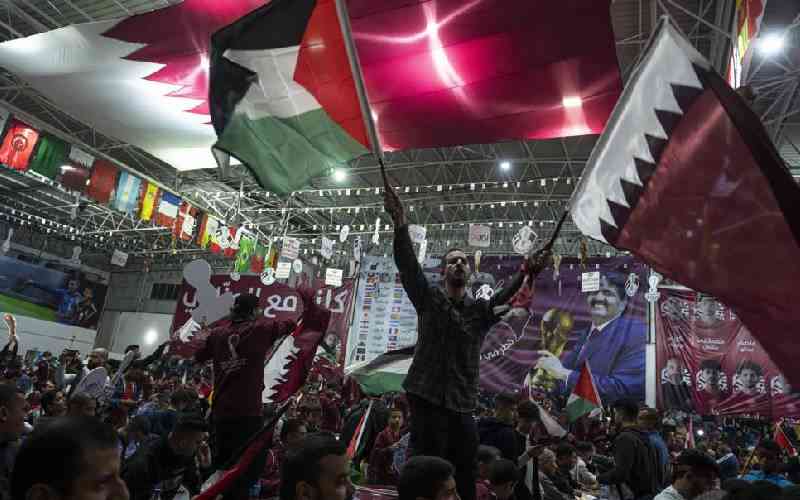×
The Standard e-Paper
Fearless, Trusted News

For a brief moment after Saudi Arabia's Salem Aldawsari fired a ball from just inside the penalty box into the back of the net to seal a World Cup win against Argentina, Arabs across the divided Middle East found something to celebrate.
Such Arab unity is hard to come by and fleeting when it arrives. But Qatar's hosting of the World Cup has provided a moment where many in the Arab world have rallied by Doha and the Saudi team's win.